I recently had the privilege of joining Dr. Tricia Bailey on her Avant Garde Entrepreneur podcast to discuss something close to my heart: building mental resilience and endurance in business and life. The conversation was so rich with insights that I wanted to share the key takeaways with you here.
When Dr. Tricia introduced our conversation, she perfectly captured the challenge every entrepreneur faces: “Around here we are all about helping global change makers like you build a sustainable social enterprise so that you can impact thousands, be profitable and have something left of yourself at the end of the day.”
That phrase—”have something left of yourself at the end of the day”—hit me deeply. It’s exactly why I wrote The Inside-Out Entrepreneur and why I’m so passionate about entrepreneurial mental conditioning.
After selling my last startup and reflecting on the mental toll of the entrepreneurial journey, I’ve become obsessed with a question that most business advice ignores: What if the biggest threat to your startup’s success isn’t market conditions or competition—but your own mind?
From Engineering Order to Entrepreneurial Chaos
Dr. Tricia Bailey: “I find it interesting that you came in from the engineering perspective and that everything in your mind was built around order and process. And then to shift to the entrepreneurial mindset. I can imagine that first of all, it had to be a huge challenge because it’s a totally different world.”
Tricia was absolutely right. Moving from engineering to entrepreneurship felt like switching from chess to improvisational jazz. In engineering, I had control over every variable. The code did what I told it to do. But business? Business has its own rules.
I shared with her the story of my first day as a full-time founder. I created a to-do list with 20 items, confident I’d finally have the time to tackle everything. By day’s end, I’d completed maybe six or seven items, and somehow the list had grown longer.
This taught me a crucial lesson: “It’s not about working harder, it’s about how you prioritize. You need to draw a line and say what you really want to ignore today.”
The engineering mentality gave me structure, but it couldn’t give me the mindset for business prioritization. That transformation is something every entrepreneur must go through.
What Resilience Really Means for Entrepreneurs
When Dr. Tricia asked me to define resilience, I went back to my engineering roots. In engineering, when we say a bridge is resilient, we mean it maintains its form under pressure. It doesn’t get deformed into something broken or unusable.
For entrepreneurs, resilience means maintaining your core mindset—your positivity, your belief in your abilities, your abundance thinking—regardless of the unexpected events hitting you daily.
But I explained to Tricia that resilience isn’t the same as robustness:
- Resilience = Can you maintain your form under pressure?
- Robustness = Can you return to your original form after the pressure is released?
Think about it this way: You get terrible news about your startup. Resilience is whether that news immediately shifts you from positive to negative thinking. Robustness is whether you can bounce back to your balanced mindset after processing the event.
Both are crucial. Both can be developed.
The Three-Role Support System That Changed Everything
Dr. Tricia Bailey: “How can entrepreneurs who don’t necessarily have a strong baseline for resilience or robustness start building resilience if they already feel burned out or overwhelmed?”
I told Tricia that many entrepreneurs think they can fix everything themselves. I understand this—we’re wired to believe we have super abilities. But when it comes to your mind, you need others.
In your support network, you need three specific roles:
1. The Mentor
Someone who challenges your mindset when it drifts negative. They keep pushing you until you build that internal voice that automatically brings you back to the “green zone.”
2. The Advisor
Different from a mentor—this person shows you around the corner in business. They’re ahead of you in the journey and can say, “Here’s what to expect when you talk to that type of VC.”
3. Friends and Family (But Not How You Think)
Here’s what I emphasized to Tricia: You must educate your family about the entrepreneurial journey.
I shared how when I raised my first VC fund, both my wife and I thought we’d made it—that we were going to be millionaires. We had no idea that getting funded was just the beginning, not the end. This created unrealistic expectations that added unnecessary pressure.
“The families of entrepreneurs are also as special as the entrepreneurs themselves. They need to understand what they’re supporting you through.”
The Daily Practices That Keep Me Centered
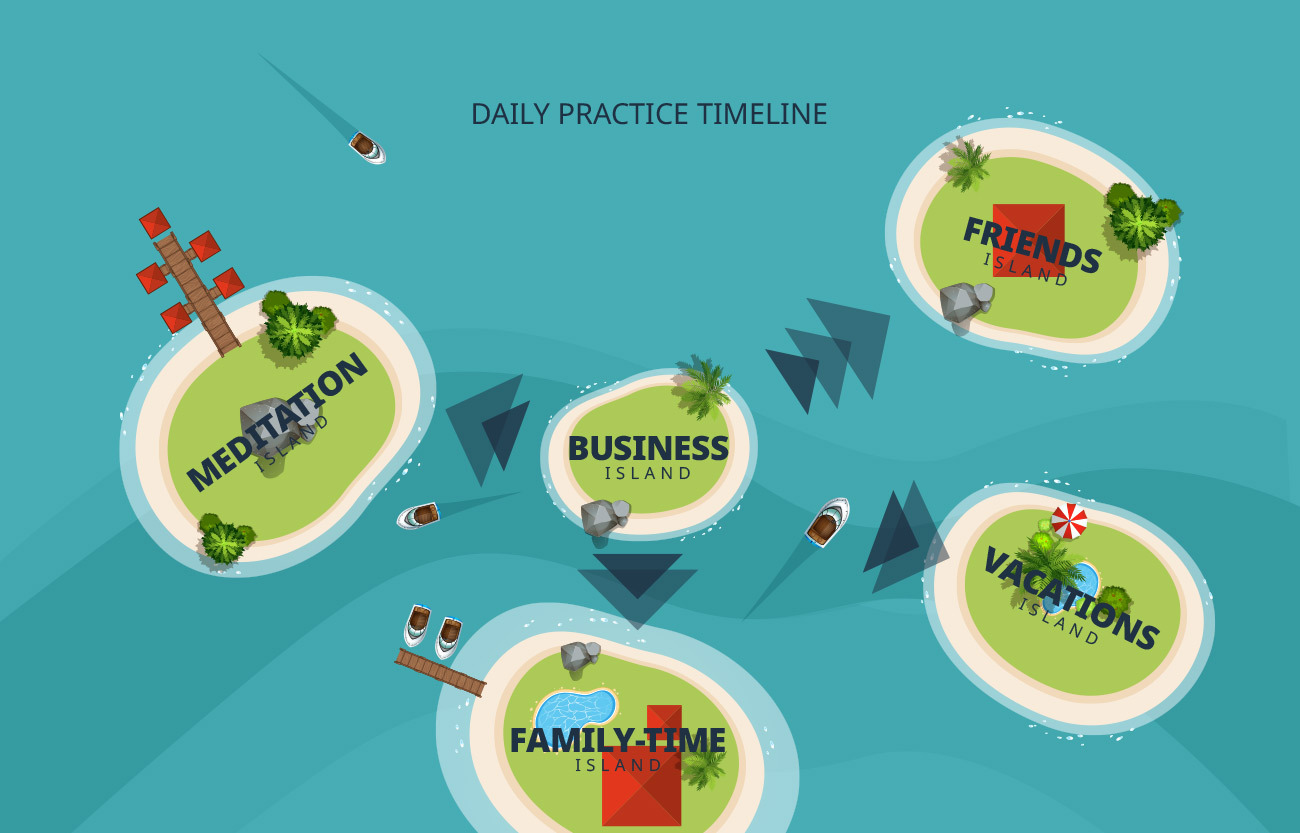
Dr. Tricia Bailey: “What are some of the daily practices that you have that have been most helpful for maintaining mental clarity under pressure?”
I shared with Tricia my core principle: Your business should be an island in the middle of your life, not the other way around.
My Morning Practice
I start every day with something non-business related. Working out, family time, breathing exercises, or meditation. This sets the tone that I’m not just an entrepreneur—I’m a complete person.
Midday Reset
During lunch, I do something unrelated to work. I might call an old friend or have a non-business meal. I actually put “connect with 2-3 old friends this week” on my to-do list.
Evening Transition
I end my day with activities that shift me away from business mode.
The Vacation Strategy
I told Tricia something that makes most entrepreneurs uncomfortable: “When you start your year, plan your vacation first.”
Take breaks every quarter—even just 4-5 days locally. Then plan your business around these dates. When someone wants a meeting, make sure it doesn’t conflict with your recharge time.
As I explained to her: “A lot of people think of sleep as a waste of time. No, it’s a productivity tool. Your vacation is also another productivity tool.”
The Identity Trap That Almost Destroyed Me
During our conversation, Dr. Tricia made an insightful observation about personal branding versus identity. This resonated deeply because I’ve seen this trap destroy entrepreneurs—including nearly destroying myself.
Over time, you start to believe you ARE your startup. When the company struggles, you think your life is miserable. When it succeeds, you feel invincible.
You need to see your startup as one project in your larger life story, not the entire story itself.
I shared with Tricia that no matter how revolutionary your technology or how many people you’re helping, at some point:
- The technology will become obsolete
- The people you’re helping will move on to something else
- You will need to move on to your next chapter
Building your personal brand separately from your company isn’t vanity—it’s survival. You’re much bigger than any single venture, no matter how successful it becomes.
The Mind-Body Connection You Can’t Ignore
When Tricia asked about the mind-body connection, I explained my belief that they’re deeply interconnected. They send messages to each other all day long.
If your mindset isn’t where you want it to be, one way to adjust it is through your body. Go play sports, do breathing exercises, get moving. Your body will send feedback to your mind.
It works the other way too. If you’re mentally stressed for extended periods, your body can go into shutdown mode. I’ve experienced this personally and seen it happen to countless entrepreneurs who ignore the physical symptoms of mental exhaustion.
The Spiritual Dimension Most Business Advice Misses
Dr. Tricia Bailey: “In your life, what is the role of faith for you and your connection with your higher power in accomplishing your mission?”
I shared with Tricia that connecting to a higher power means recognizing that there’s something bigger taking care of everything. You don’t need to act like you control the universe.
Many entrepreneurs fall into this trap—because we believe in ourselves so strongly, we start thinking we can control everything. That’s not just wrong; it’s dangerous. It will drive you toward dark thoughts when you realize how little you actually control.
Control is an illusion. The only thing you truly control is your response, your perspective, your mindset. Focus your energy there.
What Keeps Me Going Through the Dark Days
When Dr. Tricia asked about my “why,” I told her something important: I follow the same framework I teach because I believe in it completely. The book is full of stories from my own experience, and I still apply every principle:
- I maintain mentors who challenge me
- I regularly review my “why”
- I educate my family about realistic business expectations
- I work out and disconnect from business daily
- I build my identity beyond any single company
As I explained to her: “You truly and genuinely need to be interested in something else and do something different that will build your independent identity and character away from your business.”
Building Antifragile Strength: Your Path Forward
During our conversation, I referenced Nassim Taleb’s concept of three types of systems:
- Fragile – Break under pressure
- Resilient – Withstand pressure up to a point
- Antifragile – Get stronger under pressure
The goal isn’t just to survive entrepreneurship—it’s to become antifragile. To get stronger with each challenge, more resilient with each setback, more capable with each crisis.
This doesn’t happen by accident. It requires the same intentional conditioning that mountaineers do before attempting Everest. You wouldn’t climb the world’s tallest mountain without physical and mental preparation—why would you start a company without entrepreneurial conditioning?
Your Next Steps
My conversation with Dr. Tricia reinforced something I deeply believe: entrepreneurship is as much an inner journey as it is an outer one. The frameworks we discussed aren’t just theory—they’re battle-tested approaches that helped me go from near-breakdown to successful exit.
If you’re feeling overwhelmed, isolated, or like you’re losing yourself in your business, know that you’re not alone. These challenges are part of the journey, but they don’t have to define it.
Ready to build the mental strength your entrepreneurial journey demands?
Download our free Mental Resilience Workbook to start implementing these frameworks immediately: www.boundlessfounder.co/resources
Or dive deeper into the complete entrepreneurial conditioning system in The Inside-Out Entrepreneur, where I share the full stories and frameworks that transformed my journey from near-breakdown to successful exit.
Join our community of resilient founders: Connect with other entrepreneurs building sustainable success at www.boundlessfounder.co/join
Listen to my full conversation with Dr. Tricia Bailey on the Avant Garde Entrepreneur podcast. You can find the episode and explore more resources for building sustainable social enterprises at her website.




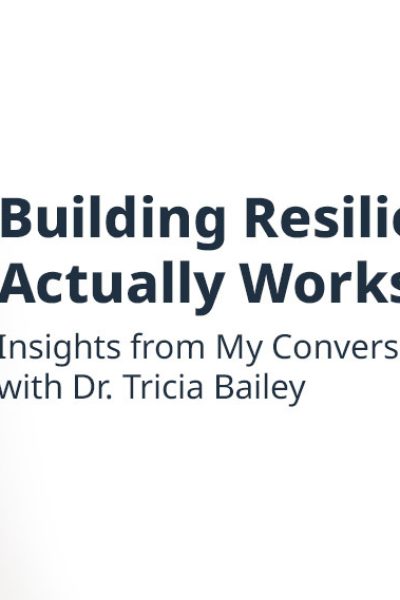
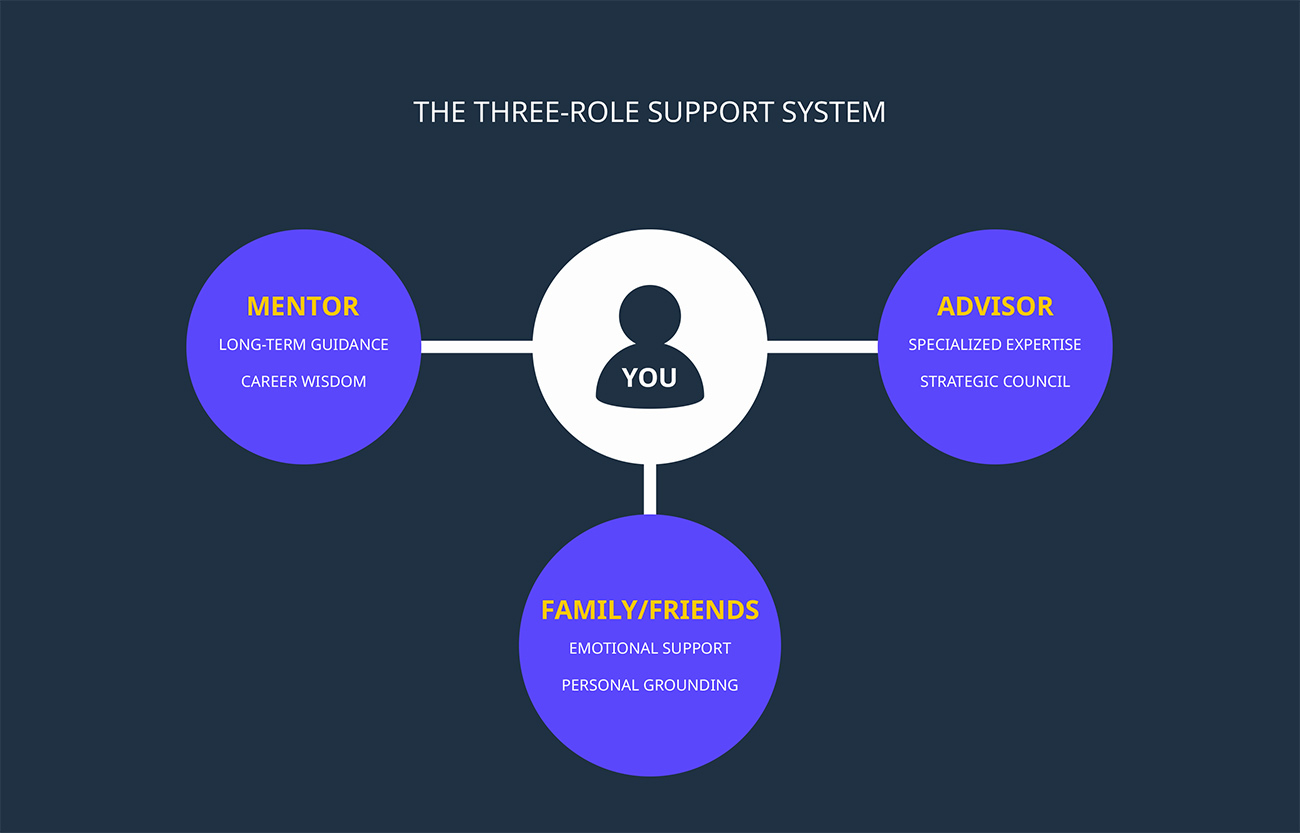
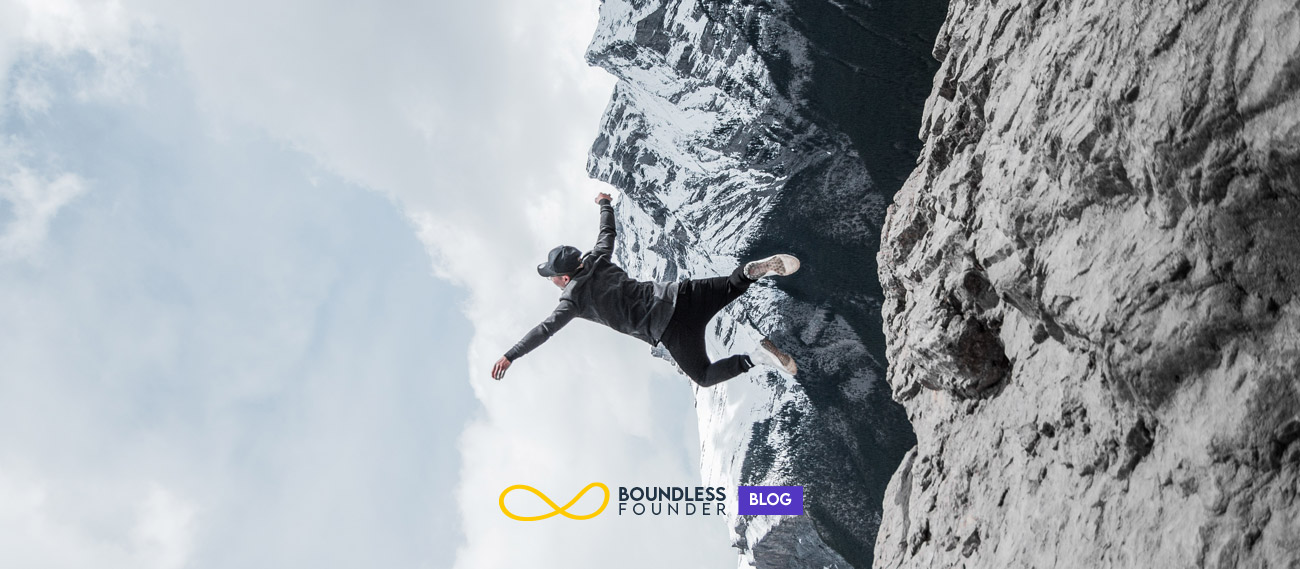
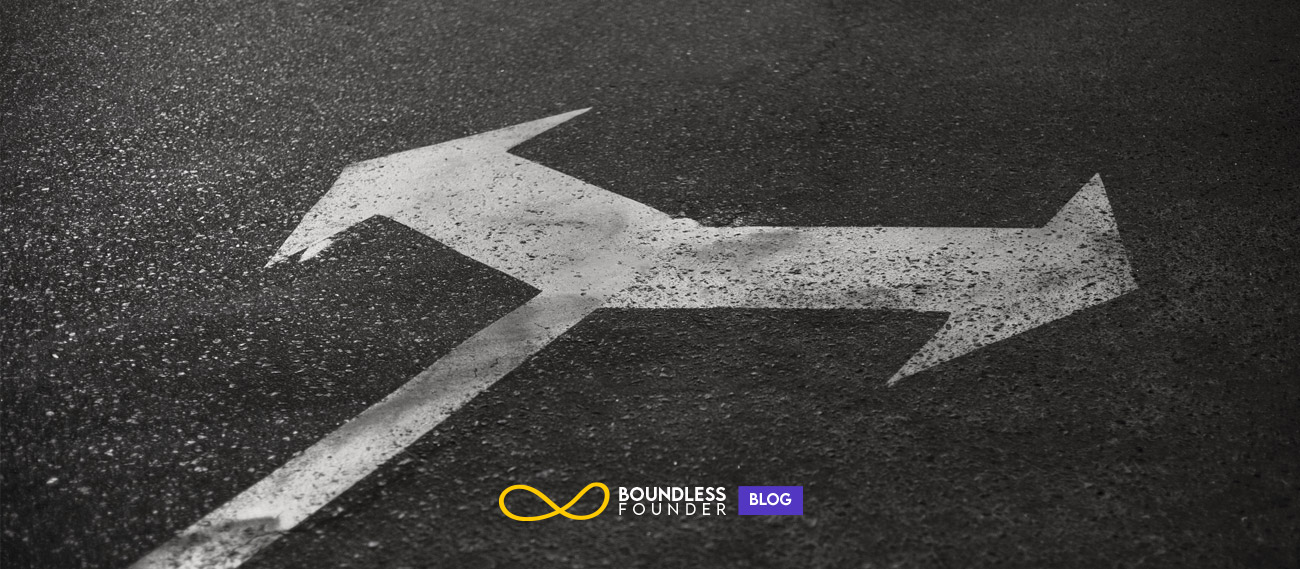




Responses